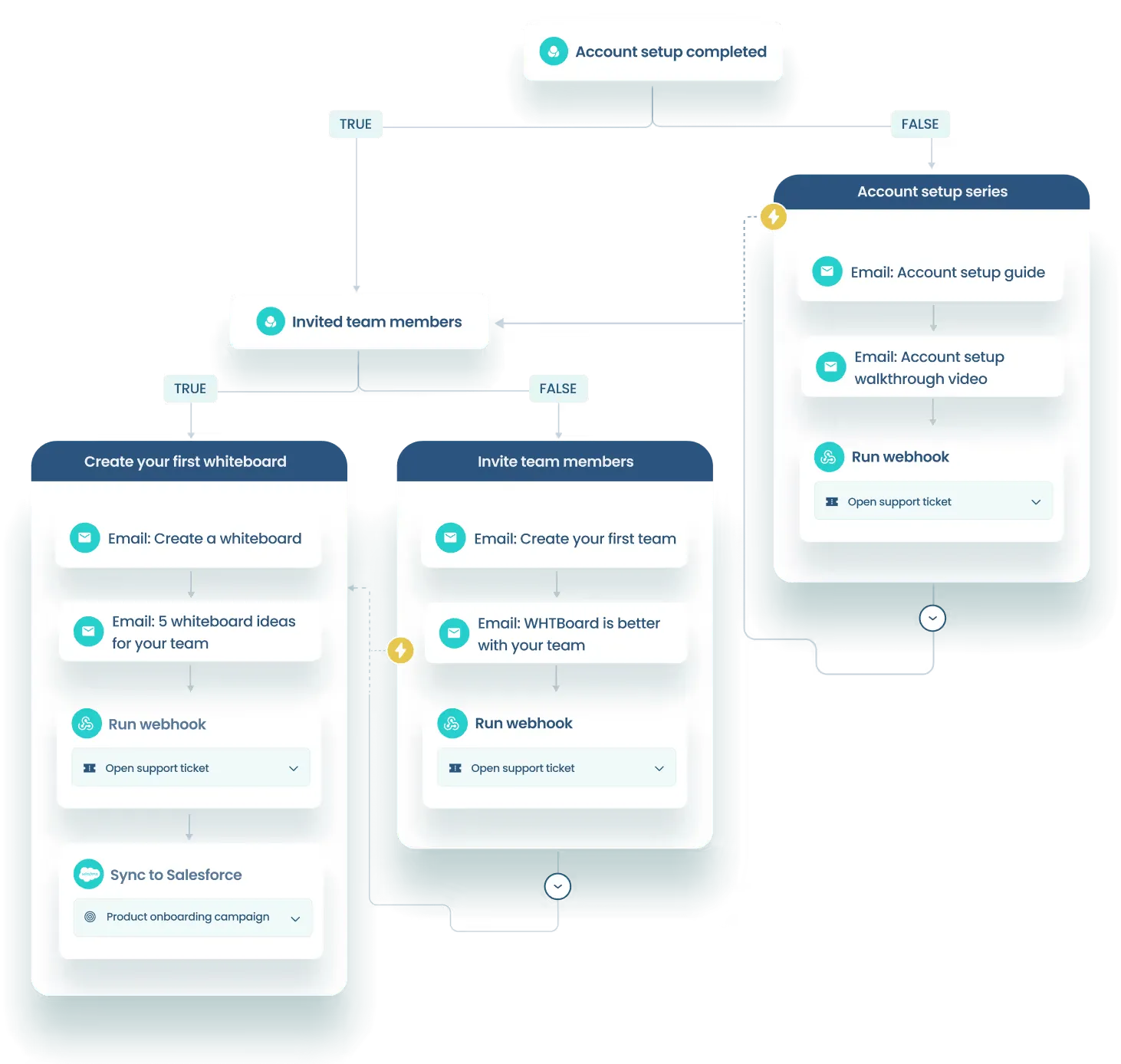3 Best Pardot Alternatives for B2B SaaS Companies in 2025
Pardot, now branded as Salesforce Marketing Cloud Account Engagement, has been a go-to choice for businesses, particularly those already using Salesforce CRM. Its seamless integration with Salesforce has made it popular among B2B companies looking to align their sales and marketing efforts. Pardot’s streamlined features, lead scoring, and automated email marketing have worked well for mid-sized and large companies.
However, as B2B SaaS companies grow and their needs become more complex, many are finding that Pardot doesn’t quite keep up. Additionally, there’s some uncertainty about the tool’s future, with rumors about Salesforce shutting down Pardot in the coming years. This has led many businesses to search for a future-ready marketing automation solution.
Below are three leading Pardot alternatives:
1. Adobe Marketo

Marketo has long been a top contender in the marketing automation space despite all the challenges it poses, particularly for large enterprises with complex marketing needs.
Why Marketo?
- Advanced Automation Features: Marketo allows for detailed workflows, making it a strong fit for B2B companies that run multi-stage, cross-channel marketing campaigns.
- Advanced Reporting: It offers advanced analytics and reporting tools, helping companies track their marketing efforts more granularly.
- Scalability for Large Enterprises: Marketo was built for larger businesses looking to scale their marketing efforts across large customer bases but, the scaling comes with an additional cost burden on the customer.
Challenges with Marketo:

- Can’t Use Product Data: Marketo is a legacy tool and doesn’t innovate to accommodate the changing needs of modern SaaS businesses. The tool doesn’t come with native integrations to data warehouses or CDPs and cannot integrate product data into marketing workflows.
- High Complexity and Costs: Like Pardot, Marketo can be complex and expensive to scale.
- Need for Trained Resources: It has a steep learning curve, requiring specialized expertise to run Marketo instances to get the most out of the platform.
- Outdated Features: Marketo hasn’t seen significant innovation in recent years, making it less appealing for modern B2B SaaS companies looking for cutting-edge solutions.
2. HubSpot

HubSpot is often considered a user-friendly option for companies looking for a comprehensive, all-in-one solution. Its ease of use and range of features have made it a favorite among smaller (less than 100 EE) businesses.
Why HubSpot?
- Ease of Use: HubSpot is known for its intuitive interface and smooth onboarding process, making it accessible even to companies without dedicated marketing ops teams.
- All-in-One Solution: It offers an all-in-one platform for marketing, sales, and customer service, which can simplify operations for growing companies.
Challenges with HubSpot:

- Limited Customization: HubSpot works well for smaller companies but falls short when it comes to the deep customization that larger B2B SaaS businesses require for more sophisticated marketing automation tools.
- Lack of Product Data Integration: Like Pardot, HubSpot does not natively integrate with product data sources, making it difficult to execute data-driven, personalized campaigns.
- High Costs with Scaling: As companies grow, HubSpot’s costs can increase quickly, particularly when you need to add contacts or advanced features.
3. Inflection

Inflection is a modern marketing automation platform, designed by former Marketo executives to support the unique needs of B2B SaaS companies by focusing on seamless product data integration, flexibility, and scalability. For B2B SaaS companies looking for a Marketo alternative or a HubSpot alternative, Inflection provides a future-ready marketing automation solution.
Why Inflection?
- Seamless Product Data Integration: Inflection allows marketers to activate product data in real time, enabling truly personalized marketing campaigns based on user behavior.
- Bi-Directional Salesforce Integration: Inflection offers native integration with Salesforce, enabling a two-way data sync between your Salesforce CRM and marketing automation workflows. This integration along with Inflection’s ability to integrate product data allows for synchronized lead and customer data - providing a more connected experience for marketing and sales teams.
- Future-Ready Features: Inflection is built for modern marketing needs, offering native integrations with CDPs, data warehouses, and CRMs like Salesforce making it a more suitable option for data-driven B2B SaaS companies.
- Flexible Pricing Model: Inflection offers the most logical of marketing automation pricing. You are charged based on the number of contacts you market to, rather than total database size, helping companies manage costs as they scale.
Inflection is particularly appealing for B2B SaaS companies looking to scale without sacrificing the ability to create personalized, product-driven campaigns.
Why Is Inflection The Best Pardot Alternative?
There are several other marketing automation tools often recommended as Pardot alternatives, including ActiveCampaign, SharpSpring, and Mailchimp. However, these platforms are generally more suited to smaller businesses or B2C companies. They also often lack the depth and customization needed by B2B SaaS companies with more complex marketing strategies.

While these tools are excellent for specific use cases, they fall short when it comes to addressing the needs of growing B2B SaaS companies that require extensive customization, product data integration, and scalability.
B2B SaaS companies are finding that tools like Pardot may no longer meet their growing needs, especially with the uncertainty around its future. If your company is looking for a more scalable, customizable, and data-driven solution, Inflection is the top alternative to consider.
Inflection stands out as a modern solution because it is purpose-built to leverage product data and CRM integration, offering a future-ready option for B2B SaaS businesses that want to stay ahead in an increasingly competitive landscape.
Ready to explore a better Pardot alternative? Request a marketing automation demo today.

%201.webp)





